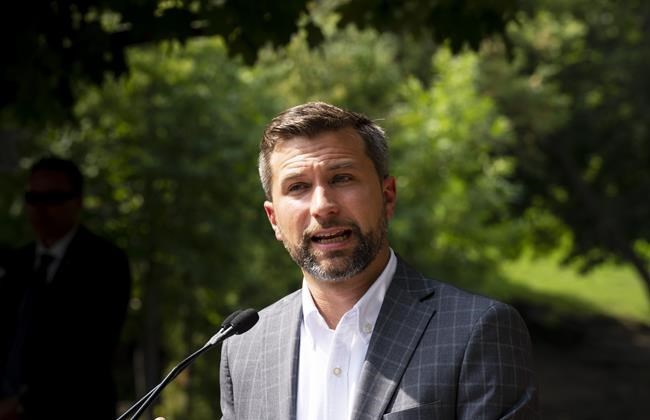MONTREAL — With the Coalition Avenir Québec party dominating the polls at the start of the provincial election campaign, the most pressing question of the race may not be who wins, but who comes in second.
And with five weeks to go before Quebecers vote on Oct. 3, experts say a clear challenger to CAQ Leader François Legault has yet to emerge.
While Legault's party is the clear leader in the polls — with support more than double that of its closest adversary — the battle for second is a much tighter race. As the campaign started Sunday, there were four parties polling between 10 and 20 per cent, including the Quebec Liberal Party, Québec solidaire, the Conservative Party of Quebec and the Parti Québécois.
"It's really a battle to emerge from this encampment by four parties that are in a completely marginal position," said André Lamoureux, a political science professor at Université du Québec à Montréal.
All four opposition parties, Lamoureux said in an interview Monday, are facing challenges that will make it hard for them to break through.
The CAQ government has made moves over the past four years that have pleased its nationalist, French-speaking base, Lamoureux said. Those include tougher language laws, a secularism law that limits religious symbols in some branches of the civil service, and demands of Ottawa for greater control over immigration.
As a result, Lamoureux says, they've "pulled the rug out from under the feet" of the once-dominant PQ, which now sits in fifth place in most polls.
The Quebec Liberal Party, despite coming in second in most surveys, has largely lost the francophone vote — something Lamoureux attributes to the party's decision to "cut itself off from the (Quebec) nation" due to its opposition to the CAQ's language and secularism laws.
The Conservative Party of Quebec, which was not a factor in the 2018 election, has been gaining popularity in the Quebec City area but could be limited by what Lamoureux describes as "almost libertarian" promises to dismantle Quebec's public daycare system, to increasingly privatize health care and to oppose all COVID-19 restrictions.
Danielle Pilette, an associate professor of strategy, social responsibility and environment at Université du Québec à Montréal, says the race for official Opposition will be between the Quebec Liberal Party and Québec solidaire, a left-wing sovereigntist party.
In order to stand out, a party needs to compellingly address questions related to cost of living, she said in an interview Monday.
"The proposals which will be the most examined are those which propose tax catch-ups for the less-favoured classes, then catch-up or compensation in relation to the cost of housing and the cost of transport," she said.
These issues, Pilette added, especially those pertaining to housing, are ones Québec solidaire is well-prepared to address. She said the party may have room to grow in working-class neighbourhoods in Montreal and other urban centres, some of which have recently elected progressive mayors.
She said things will be difficult for Liberal Leader Dominique Anglade, who is facing a challenge from small, pro-anglophone parties in Montreal, adding that the leader is also struggling with the legacy of previous Liberal governments that were dogged by ethics scandals and unpopular policies. However, she said, the party — other than QS — is the only other candidate for Opposition "by default" because the others don't have a wide enough base.
Éric Bélanger, a political science professor at McGill University, says identity issues — particularly protection of the French language — and the environment are the topics that will allow a challenger to gain attention.
Like Pilette, he says Québec solidaire is strong on those issues and also represents the clearest alternative to Legault's centre-right party, although he notes that the party's base is made up of young people — a demographic that doesn't always vote.
The results on election day could be tighter than the polls indicate, Bélanger said. Quebec's first-past-the post system tends to introduce "disproportionality" that is exacerbated in ridings with three- or four-way races, he added.
While he expects Legault's party to win, he says the CAQ's majority may be smaller than polls suggest. Some voters who are opposed to Legault may decide to vote strategically and throw their support behind the leader they think is best placed to challenge him, he added.
Lamoureux, for his part, says Québec solidaire has a ceiling of about 15 per cent of votes due to its "communitarian and very racialist" left-wing policies, such as its insistence on the existence of systemic racism — a concept that the CAQ denies exists in Quebec.
He says Quebec could be heading toward an election result the province hasn't seen in more than 100 years: where no opposition party receives more than 20 per cent of the vote. The opposition, Lamoureux added, will need to hope for strong performances in the leaders debates to have any hope of shifting the needle.
This report by The Canadian Press was first published Aug. 30, 2022.
Morgan Lowrie, The Canadian Press



